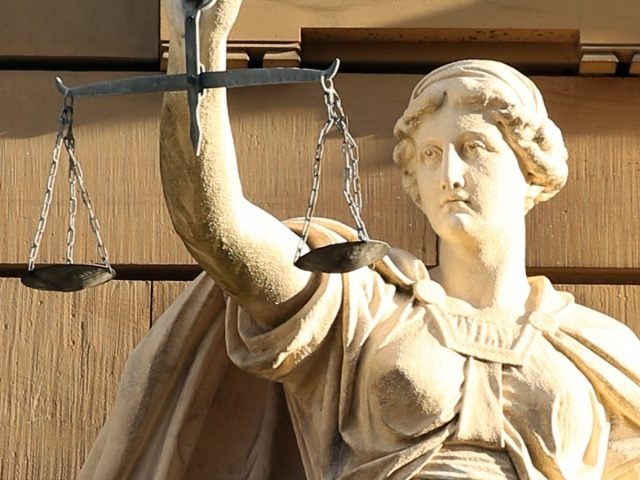Like virtually all or most legal words, these come from Latin. If we then take into account the meaning of the concept of law, it would be a Latin word that would come to mean something like, not straying from the right path or the good path and follow the laws and who directs it. In these cases, the cases will always be civil.
The phrase or, rather, the expression itself, Concept of law, refers to a study and its discipline. Obviously, all this has its own concept… and is generally used, with the right.
The combination of saying, concept of “law” this last word, refers specifically and is expressly linked to the science that studies and/or is related to law. When talking about law, one takes into account both procedural law, civil law, constitutional law, criminal law, procedural law… even international law (among others), etc.

If we want to understand or know exactly what the dictionary tells us about its meaning, the concept, what it means and what we understand by the concept of law, we should go look at the general dictionary. The king of the Spanish language, which is none other than the RAE. That of the Royal Spanish Academy of Language. After reviewing and looking at what it tells us, it is saying the following: “that it is a norm dictated either by the courts or by Parliament, which follows some laws, by the Regulations of the Chambers, which in turn have mandates and occupies a position hierarchical, which is inferior to the Constitution, but is superior to other regulations.
Instructions
- It is necessary to always value, in the laws and with the norms, the natural normsthat would always be: the cases of force majeure and the cases that are fortuitous.
- Cases of force majeure(as well as in cases that are fortuitous), are cases where it is not possible to foresee, plan, or make proposals… they are therefore cases that cannot be avoided.
- In cases of force majeure, circumstances will not be exempt from not being able to comply with the obligation to comply with the laws.
- Failure to comply with the laws has responsibilities and it is more than clear. They are obligations imposed on all citizens and on everyone. Just as they must be fulfilled, they are also citizens’ rights. For breaches of the companies with the workers, legal, guilt, negligence, breached duties, etc.
- In a state of need, they are situations that help, they are next to the person who needs it (for whatever reason or whatever). Negatives that are voluntary, which are when a person does it without the intention of harming, without wanting to harm. The voluntary negatives are the illegal ones. In this case, when it happens when harm is done, when harm is caused, it is done with prejudice and all of it, done with malice. There are also cases and levels in these legal subsections, such as natural, involuntary, and voluntary. In these last three sections, both natural, involuntary, and voluntary, it must be taken into account that they should always be valued.
- In these cases, the seriousness of the facts will be assessed and it will be determined with the laws if the payment is economic, legal, will be deprived of liberty, etc. There are many issues that will be assessed from whom, how, when, the seriousness of course, the evil with which it is done or if it is done without it, etc. Obey the laws to comply with them and not have to use the law and make him comply.
- When talking about legal law, therefore, it makes us think about what we can call or understand, as rules at the legal level and are created and also accepted by the State.
- Talking only about law has to make us think about what it means by itself. And it is, so to speak very briefly and very summarized, that they are norms (of a legal level, of course) that are contemplated by law, that must be complied with.
- To explain it another way…. Let’s see. If there are laws, they must be complied with, they must be attacked, they must be heeded. You can’t go skipping them lightly because if everyone does the same, let’s imagine from the outset, the madness that this could entail… a real chaos in all areas.
- People, citizens, people, companies, businessmen, etc. Everyone has to comply with the rules that are imposed and if they ignore and omit them, obviously, they will have to “pay” a certain toll…. It will depend on which one or even have to see, deprived of liberty. But norms and laws are very necessary in order for all citizens to have a stable, good coexistence, in good harmony and without problems or shocks.
- It is also quite true that there are many laws for almost everything, but it is also known that there are no laws already elaborated or made for certain acts because they are not contemplated in the legislative programs and it is there, in the state, where all of them should appear.
- A priori it is not entirely easy to understand it with so many legal technicalities, but the concept can be explained in a simpler way and understood more easily. When we have to interpret what it means and its concept, we have to think about the meaning and, of course, also about the scope, but always, without forgetting that the issue is legal. Everything we are talking about is not trivial and you have to know how to understand it and/or interpret it not in broad strokes, but in a specific way. In other words, you have to think about a specific topic, about a real case, about a real event. This is the only way to know how the rule and/or law is applied or will be applied, based on that specific fact.
- The law, taking into account that we have already explained it and that we repeat, is a set of rules (always of a legal nature) protected, therefore, by law and by the state.
- They are made so that they are complied with and designed with the purpose within other laws, so that, when carried out, they only help in a good coexistence, tranquility and well-being in particular. All this is at a social level and therefore people or citizens must comply.
- The legal norms, therefore, as they are part of the laws of each country or worldwide, have the same purpose. The purpose of being able to maintain a stable coexistence in society among all. When we speak in the plural and generalize, we say everyone, thinking both about people and also thinking about the organizations and the state that make up the country or countries.
- Explained without so much technicality we forget about more specific data but that are or may be of interest to you (that is why we have not forgotten to include them) but we have thought of making it summarized, clear and direct, so that it would be better understood.
- Explaining everything in a somewhat more detailed or exact and concrete way, we should go back to Ulpiano. You have to know who Ulpiano was. He this was, a Roman jurist (although born in Phoenician). He is an important legal character since Ulpiano was at the time the adviser, tutor, teacher, praetorian… of Alejandro Severo (he was an emperor). To define justice, at that time, was the will to be able to give each person what corresponds to them at a legal level. Ulpiano, therefore, was in charge of distributing and knowing what was good, what was bad and also what was fair.
- Other important characters, such as Immanuel Kant, a famous philosopher of Prussian origin, was a quite important figure during a specific time or moment and later, he became a person who represented criticism and was in charge of leading to know and profess with fanaticism from Germany. Therefore, Kant ended up being considered one of the most influential people in modern Europe regarding “modern” philosophy. According to his words, he himself said at the time regarding the law (which is the subject in question), which was, the conditions or set of them by which the arbitrator of each one could exist and coexist with the criteria of the others, always taking into account, freedom, which in the end, is the only universal law.
Another important person was Karl Marx, a philosopher of Jewish origin. In addition, he was a sociologist, a journalist, a very intelligent person and a Prussian communist militant. This revolutionary activist believed that the law was, the will of the people always of class with a certain dominating power, turned into law. - Regarding a legal and formal point of view, it would be this: that there is a set of principles that, with a certain technical and legal order, make available various types of regulations that stand out from the rest, so that later, they can leave even without value other already previous norms and the norm at hierarchical level. All this, without taking into account the part of the legal regulations. In other words, it could be classified as a part of the regulations that is not formal. From a legal and formal point of view, they are also taken into account (although it is somewhat complicated to be able to explain it briefly), that is to say, that the special norm over which it would be main is taken into account and there are or may be norms and laws that are general and there are also laws that are specific and there are institutions that, in certain cases,
- The laws, it is clear and it is known, that must be complied with. In the legal field, there are many different laws and concepts of law that exist to be able to catalog them by their seriousness, involved, etc. We are all the ones who must comply with them and they are designed to be able to live together as calmly as possible in harmony and without problems. In case of these, the laws apply. It is there, the concept of law with the multiple laws that exist, when they come into play.
What do you need
- You have to comply with the established rules and abide by them.
Tips
- As a curiosity, it should be noted that the goddess of justice always carries (pay attention and you will be able to see it) three symbols.
- These symbols are as follows: on the one hand, he carries a sword. The sword signifies the coercive power of the state. On the other hand, there is the balance. The scale has the symbology of balance. That is to say, that there is a balance between the part of the rights and, on the other hand, a balance for the litigants. And it remains, the third symbol. It is the blindfold that covers her eyes, the goddess of justice. Her symbology means that by covering her eyes, she has impartiality. Therefore, in trials, she must always be impartial.
